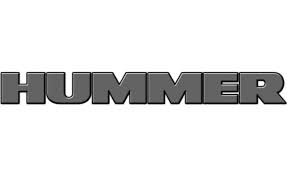H3 L5-3.7L (2007)

Never use acetone, ketones, or methanol additives in your vehicle. Some of these solvents may damage or corrode your fuel system. They are also
very damaging to the painted surfaces of the vehicle if spilled. Damage to vehicle components that result from non-approved or aftermarket additives
and devices are not covered under the terms of the New Vehicle Warranty. The only fuel additive currently approved by GM is GM Fuel System
Treatment Plus, P/N 88861011 (in Canada, # 88861012).
WHAT TO DO: Maximizing Fuel Economy/Minimizing Costs
The best fuel economy possible is the direct result of proper maintenance and good driving habits. Listed below are GM's recommendations to achieve
the best mileage possible. The first group are things to consider for your vehicle, while the second are tips relating to your driving habits.
Vehicle Considerations:
^
Tire Pressure - One of the major contributors to poor fuel economy are under inflated tires. Tires low on pressure create drag that the vehicle's
powertrain must overcome, wasting dollars in fuel. Always keep your tires inflated to the proper pressure as shown on the vehicle placard. This not
only serves to increase gas mileage but cuts down on tire wear, further decreasing your costs per mile.
^
Air Filter - A vehicle that has a dirty air filter can't efficiently draw air into the engine. This restriction forces the engine to expend energy to
"breathe" wasting fuel in the process. Change recommendations are found in your vehicle Owner's Manual.
^
Proper Viscosity "Starburst" Rated Oil - Always use the proper viscosity oil in your engine. Oil that has a higher than required viscosity will create
more drag on the internal components of the engine, causing more work for it, especially when cold. Each Owner's Manual contains information on
the proper type of oil for your vehicle. Look for the "starburst" symbol on the front of the bottle, and the SM rating on the API circle on the back
label. If you are in doubt, stop by your dealer for an oil change, and any other services required. Most current GM vehicles are equipped with oil life
monitors to further assist on the "when" to change your oil. (Aveo/Wave/Optra/Epica currently do not have oil life monitors).
Notice:
GM Vehicles DO NOT require additional engine oil additives. Some additives may cause harmful effects to the internal seals and additionally void
the terms of your vehicles New Car Warranty.
^
Top Tier Fuels - Some fuel manufacturers provide gasoline advertised as TOP TIER DETERGENT GASOLINE (Chevron, Conoco, Phillips 66,
Shell, Texaco, Entec Stations, MFA Oil Company, 76, Somerset Oil, Aloha Petroleum, Tri-Par Oil Company, QuikTrip, and Kwik Trip) in the U.S.
and (Petro-Canada, Chevron, Shell, and Sunoco) in Canada. These fuels are preferable when and where available. They help to keep your fuel
injectors and intake valves free of deposits. Clean engines provide optimal fuel economy, performance and reduced emissions. When Top Tier fuels
are not available, consider a bottle of GM Fuel System a bottle of GM Fuel System treatment PLUS, P/N# 88861011 (in Canada, # 88861012), at oil
change time which will remove intake system and injector deposits. GM does not recommend any other fuel system cleaner.
Important:
DO NOT confuse Top Tier Fuels with Higher Octane (Plus/Premium Grade Fuel) commonly sold at most all gas stations. Plus and Premium fuels
are required in some high performance GM vehicles. However, they do not necessarily represent higher detergency present in TOP TIER Detergent
Gasoline.
Important:
For additional information regarding Top Tier fuels and availability, please refer to Corporate Bulletin Number 04-06-04-047G for U.S. or
05-06-04-022D for Canada.
Notice:
E85 FUELS: Only vehicles designated for use with E85 should use E85 blended fuel. E85 compatibility is designated for vehicles that are certified to
run on up to 85% ethanol and 15% gasoline. All other gasoline engines are designed to run on fuel that contains no more than 10% ethanol. Use of
fuel containing greater than 10% ethanol in non-E85 designated vehicles can cause driveability issues, service engine soon indicators as well as
increased fuel system corrosion. See Corporate Bulletin Number 05-06-04-035C for additional information.
^
Use the Recommended Grade (Octane) Fuel
Purchasing higher than required octane fuel is a waste of money. Using higher octane fuels in a vehicle that only required regular unleaded fuel will
neither increase performance nor improve gas mileage. In all cases refer to your owners manual and ONLY use the octane rated fuel recommended
for your vehicle.
Important:
In high performance GM vehicles that DO require Premium (91 octane or higher) fuel, you MUST use fuels of at least this octane. Use of lower
octane fuel may result in reduced performance, knocking, and/or permanent engine damage not covered under the terms of the New Vehicle
Warranty.
^
Check Engine/Service Engine Soon Light - Is the Check Engine/SES light on? When this light is on, the vehicles On-Board diagnostics computer has
noticed that something is wrong. GM vehicles have many sensors that the computer uses to both control and sense actual fuel usage. When the
computer lights the Check Engine/SES light it has lost some ability to run efficiently. This may result in increased fuel consumption, increased
emissions, and/or driveability concerns.
